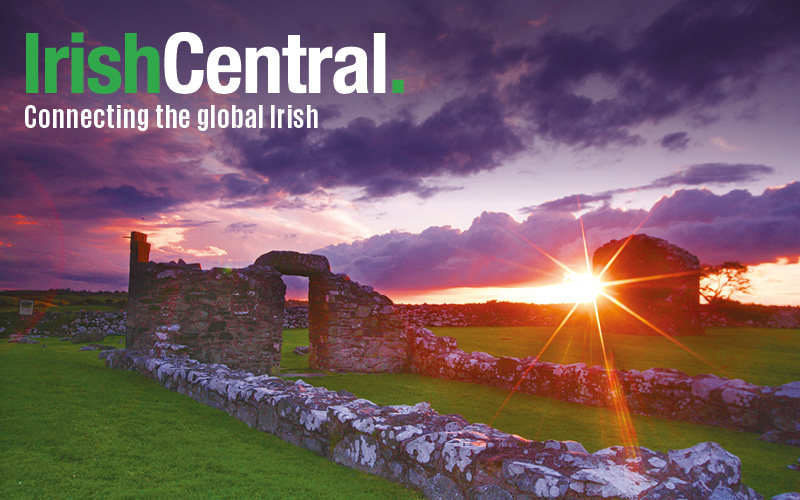Some people who loved Moore’s previous provocative looks at health care ("Sicko"), gun control ("Bowling for Columbine") and the war on terror ("Fahrenheit 9/11") have applauded Moore’s intense criticism of corporate greed.
Then there are Moore’s enemies. The Fox News crowd and other right wing critics gleefully label Moore a socialist or communist, not to mention an anarchist and the anti-Christ, sometimes in the very same sentence.
Often, Moore revels in such criticisms. But in his latest movie, Moore seems like he is trying to cut his critics off.
For example, he uses an Irish Catholic priest to bolster his case.
Who would have thunk it? Michael Moore and the Catholic Church, teaming up to take on Wall Street.
Actually, Moore has often talked about his Irish and Catholic roots, as he did last week during an interview with IrishCentra's sister publication the Irish Voice. The problem is that so many people either love or loath Moore that it is easy to ignore some of the lesser-known facts about his personal life.
But often Moore links his radical politics to his Irish Catholic background. In 2004, while visiting Liverpool on a book tour, he told a crowd, “I’ve always asked everyone to send me to Liverpool and they’ve always said no. Why? They’re afraid of the city, aren’t they? Because at the end of this book reading you might actually go out on the street and tear something down. Woo-hoo!”
Then, according to a New Yorker profile, Moore told the crowd “that Americans of Irish origin had a special feeling for Liverpool, because their ancestors -- Moore’s own great-grandmother among them -- had come through the city on their way to America.”
Then, a man in the Liverpool audience yelled out, “We never left, Mike. We starved here. Five thousand Irish people were buried in paupers’ graves in this city through typhus. This city has seen misery untold.”
In "Capitalism: A Love Story," Moore tries to undermine the argument often made by Republicans that unfettered capitalism and Christianity go hand and hand. He talks to numerous Catholic priests, among them an Irish American named Peter Dougherty. This bolsters Moore’s argument that the hyper capitalism we’ve seen in recent years is not only bad policy, but sinful and amoral.
In a recent TV interview, Dougherty said that Moore wanted to discuss greed “from the morality standpoint as well, and so he asked me as a Catholic priest what I had to say about capitalism."
Dougherty added, "Things are in bad shape in the United States of America, our economy, the corruption is rampant. Hopefully some of what I'm saying might strike a chord."
Now, this might seem like a stroke of genius from Moore. Imagine a nice white-haired Irish priest, like Barry Fitzgerald, on the side of Moore.
However, Dougherty -- agree with him or not -- is pretty much the kind of priest you’d expect Moore to embrace. He belongs to an outfit called the Michigan Peace Team, which “empowers people to engage in active non-violent peacemaking,” according to the group’s website.
Okay, so Moore found himself a fellow radical Irish American rather than a grandfatherly Barry Fitzgerald type. What’s interesting, though, is that Moore is using the priests’ views to counter what he sees as mainstream American values.
Some might say that it was the so-called “Protestant work ethic” which has gotten America where it is today -- in one fine mess. In short, Moore is stressing what we can call the “un-American” strains of Catholic teaching about social justice.
Once upon a time, Catholics were desperate to prove just how “American” they were. Now, Moore is glad to show the radical side of the church he grew up in.
Of course, some might ask where Moore stands on a whole bunch of other Catholic issues, from abortion to homosexuality. Still, the church has always had a radical element.
A century ago, Baltimore’s John Cardinal Gibbons challenged papal opposition to labor unions and won. The Berrigan brothers were central players in the Vietnam-era peace movement.
At the very least, credit Michael Moore for reminding Irish Catholics just how diverse their church can be.




Comments